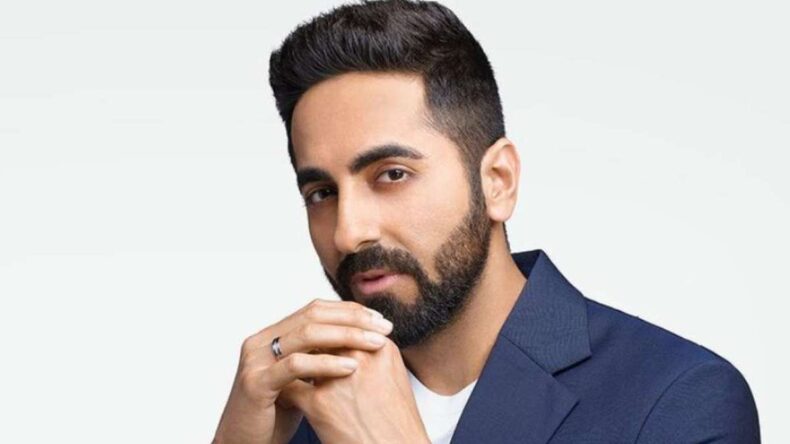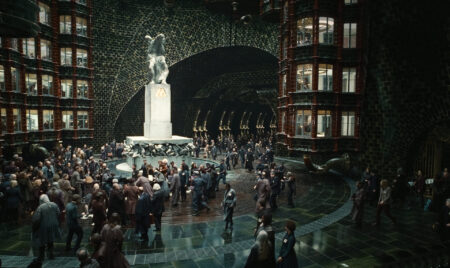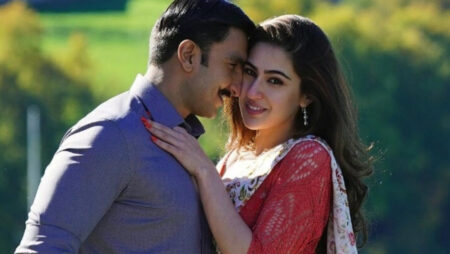Ayushmann Khurrana isn’t one for taking risks. The actor challenges the established quo in his works while injecting mainstream flavour into issue-based filmmaking.
Key Highlights
As seen in Abhishek Kapoor’s Chandigarh Kare Aashiqui, the concept has worked for him. The film examines how India views the transgender community, with Ayushmann Khurrana’s alpha male Mannu perhaps representing a significant portion of the population.
“I needed to play that role, a traditional alpha guy who is ignorant and uninformed, since he represents the regular man on the streets in India,”
the actor admits. “The essence of the picture is how his emotional change occurs throughout the film.
About Ayushmann Khurrana
I was born and raised in Chandigarh; therefore, I am familiar with the city and its inhabitants. I’ve also done street theatre and radio, so I’m familiar with folks similar to Mannu. I’ve lived a very diverse lifestyle and was also a cricket team member,
so I’ve met individuals from all walks of life. I’ve encountered oblivious people and believe that their body is more important than anything else. Mannu is a product of such an attitude. In reality, when I was in high school and college, there was very little acceptance for the (LGBTQA+) community.
However, as we grow older, we all discover new things. Then I moved to Mumbai for my first work, where I met with members of the society and developed empathy. Of course, it was a slow transformation, but I am now a completely new person.”
Ayushmann khuranna’s Early stage of Industry
Ayushmann Khurrana has been an actor who has consistently chosen content-driven films since his debut feature (Vicky Donor). The 37-year-old actor claims that doing films with hazardous issues comes easy. Isn’t he concerned about restricting his actor options and film choices?
“I think it will always be difficult,” Ayushmann remarked. I’ve always been a risk-taker because I don’t know what else to do. My cinematic career began with a daring subject. And it’s scarce to come across excellent screenplays, and it’s even more challenging to come across a script that’s renowned as a content script but yet resonates with the people and has a bigger audience.”
Several experiments are on the horizon. “My next project is an action picture called Action Hero, for which I am learning MMA (mixed martial arts), which will be a huge challenge for me because it is a genre-breaker.” Even Anek, alongside Anubhav Sinha, is a genre-defying actor.
So anything that takes me out of my comfort zone is complicated for me. Having said that, because social comedies and dramas are the foundation of my filmography, I will not quit making them.
And it’s significant to me because I come from a street theatrical background where I used to write plays about social concerns, and this is simply an extension of that.”

Returning to his initial choice, Vicky Donor, Ayushmann revealed that he had previously rejected six projects before he was allowed to join them. “So what options did I have?” the actor says matter-of-factly.
Industrial journey of Ayushmann Khurrana
“You’ll be astonished,” Khurrana says. I was a VJ (video jockey) at the time, and I was getting a lot of requests to act. I had previously turned down six films before making my debut. Of course, these weren’t large pictures; they had pretty generic themes and conceptions, as well as overdone subjects.
As a result, I felt compelled to do something out of the ordinary. I wanted to tackle ideas that had never been addressed before. I’m grateful that Shoojit Sircar believed in me and came up with a groundbreaking idea, which he then turned into a family film. That got me thinking about how films are a terrific way to start a conversation.
“If you are doing a narrow picture for a woke audience, there will be no change,” Ayushmann argues, emphasizing the importance for films to contain relevant issues while yet being accessible to the general public. Change can only occur if the case is brought into the sphere of commercial cinema.
Only then will change appear; else, it will become an inside joke.” “Films that brace transformation are the type of films I look forward to seeing since cinema plays such an important part in social transformation,” Ayushmann says.
Edited by- Kritika Kashyap
Published by- Satheesh Kumar













